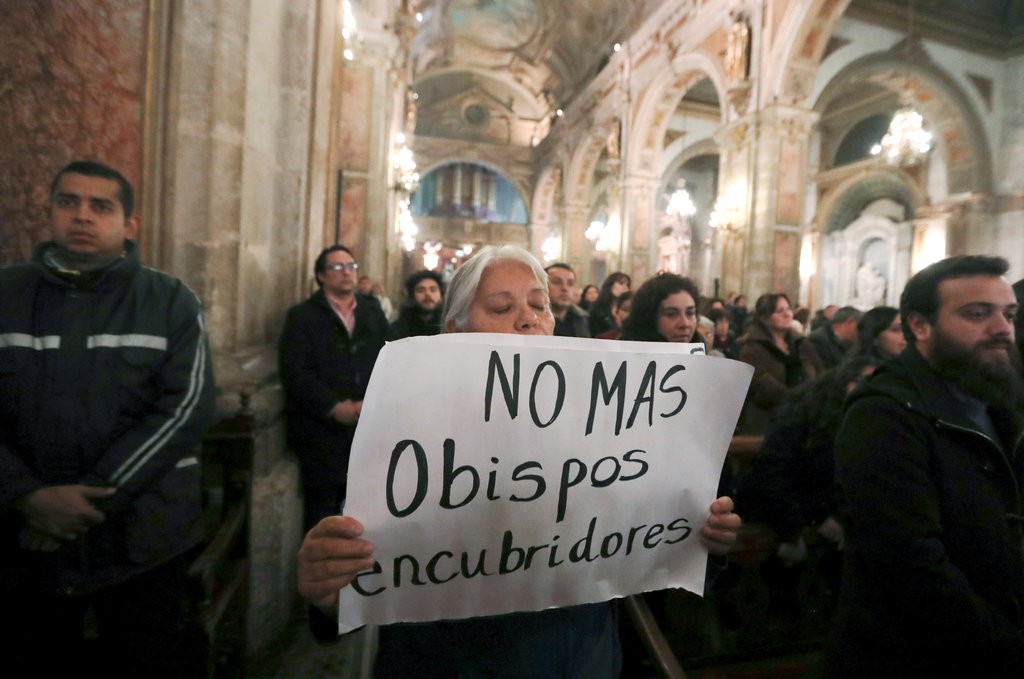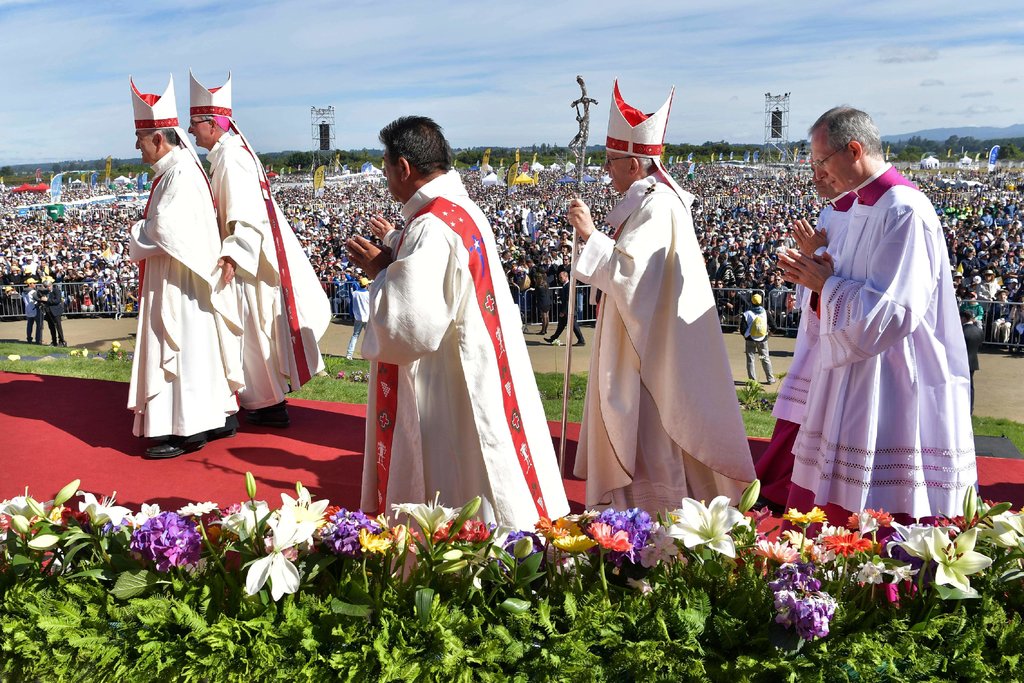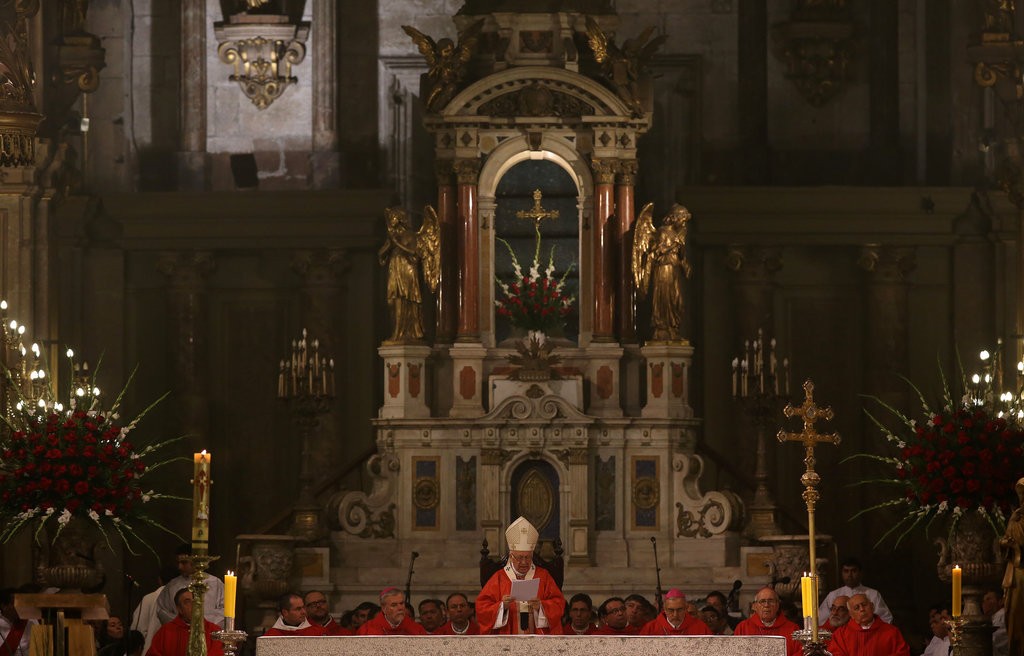Catholic Church Faces Reckoning in Chile As Sex Abuse Scandal Widens
By Pascale Bonnefoy
The 20 men and women rose quietly from their pews during Mass at the Cathedral of Santiago one day last week, unfurled a banner and held up signs. “All Bishops Resign,” one read. Looking back from the altar was Cardinal Ricardo Ezzati, the archbishop of Santiago and a focal point in a growing reckoning over allegations that leaders of the Catholic Church in Chile repeatedly covered up the sexual abuse of minors by priests. After Pope Francis this spring acknowledged a “culture of abuse” in Chile and Vatican investigators found a pattern of inaction and concealment, Chilean prosecutors have stepped up their own efforts to investigate scores of church officials. Special prosecutors, who have been appointed in each of Chile’s 15 regions, are examining cases involving 104 potential victims, half of whom were underage when the reported offenses took place. Nearly 70 clergy and lay people are under investigation, including three bishops. Cardinal Ezzati, who has denied accusations of covering up abuse, is the highest-ranking church official in Chile under investigation. Next week a congressional commission may consider revoking the Italian-born cardinal’s Chilean citizenship, which was awarded in 2006. “A paradigm has been broken,” said Jose Andres Murillo, whose public allegations of abuse were among those that set off the crisis. “It’s like a huge wave that pushed the church’s ship to move.” In recent months, all of the country’s bishops offered Francis their resignations, and a handful have been accepted. A high-ranking official has been jailed on charges he abused boys, and allegations against other priests have mounted. “The church is immersed in a deep crisis, and those who committed abuses against minors have to pay for those crimes and face justice, regardless of who may fall,” said Alejandro Alvarez of the lay organization Catholic Voices, which speaks out on a variety of church issues.
The recent reverberations began not with an accusation but with a defense: During a visit to Chile in January, Francis defended Juan Barros Madrid, a Chilean bishop who had long been accused of covering up abuse reports. “It is all slander,” Francis said in remarks that immediately caused an outcry. Francis, startled by the response, then sent two investigators, Archbishop Charles Scicluna and Msgr. Jordi Bertomeu, to Chile to examine how church officials had handled sexual abuse reports. The Vatican investigators issued a 2,300-page report based on 64 interviews, accusing Chilean church leaders of failing to investigate credible allegations. They found that priests who had been accused of wrongdoing were shuttled to new parishes, in some instances putting them in regular contact with minors. The report said that church leaders went as far as destroying documents. Francis apologized, admitting he had made “serious errors of judgment and perception of the situation.” In April, he met with three men who had been abused as teenagers, and the next month he summoned the entire Chilean Bishops Conference to Rome. It was there that all 34 bishops offered their resignations. “I believe Pope Francis realized the social and political challenges facing the church in today’s world, and is pushing the Chilean church toward a crisis from which he is confident something new will arise,” said Mr. Murillo, who was one of the men invited to the Vatican. He now leads the Foundation for Trust, a group for abuse victims. The pope has accepted the resignations of Bishop Barros and four others. Among them was Alejandro Goic, who led the church’s National Council for Abuse Prevention and has been questioned by prosecutors on accusations that he failed to act on repeated reports of abuse in his own diocese. Archbishop Scicluna and Monsignor Bertomeu returned to Chile in June to meet with prosecutors and church leaders to follow up on the accusations. The pope’s envoys heard from additional victims and, before leaving, appointed a group of lay people and clergy to continue receiving reports of abuse. They also sought to improve relations with the lay community, particularly in Osorno Province, where Bishop Barros was based. “We are in a process of jointly building a new church, and we need new bishops, new priests,” said Mr. Alvarez of Catholic Voices.
Chilean prosecutors, in turn, have met regularly with members of the Bishops Conference and have formally requested a copy of the Vatican report, the full text of which has not been released. “The Bishops Conference is fully available to cooperate with the courts,” said Jaime Coiro, a spokesman for the group. The conference is meeting this week in the coastal town of Punta de Tralca to discuss how to cooperate with criminal investigators. Still, some church officials are alarmed by the prospect that the Vatican report might be shared with prosecutors. “Its untimely dissemination could produce serious harm to people who often ask that their testimony be kept confidential,” Bishop Juan Ignacio Gonzalez of San Bernardo said in an interview with Radio Cooperativa. Chilean investigators have also searched church offices in several cities in recent weeks, including those of Cardinal Ezzati, the archbishop of Santiago. Prosecutors are investigating allegations that Cardinal Ezzati did not report abuse cases to the courts involving the chancellor of the archbishop’s office, the Rev. Oscar Munoz. Father Munoz, a trusted member of the church hierarchy, had handled abuse reports and other confidential information. In December, Father Munoz told his superiors that he had been accused of abuse himself, the archbishop’s office said, which prompted church officials to open an internal investigation but not to report the matter to the authorities. In July, Father Munoz was taken into custody while a criminal investigation against him continued. He has not commented publicly on the investigation. In a statement, Cardinal Ezzati said he had “never covered up or obstructed justice” and would comply with investigators’ requests for information. In public, he has remained stoic. “We are perplexed, but not desperate,” Cardinal Ezzati told congregants shortly before the protesters rose. “Persecuted, but not abandoned. Knocked down, but not annihilated.”
|
.
Any original material on these pages is copyright © BishopAccountability.org 2004. Reproduce freely with attribution.


